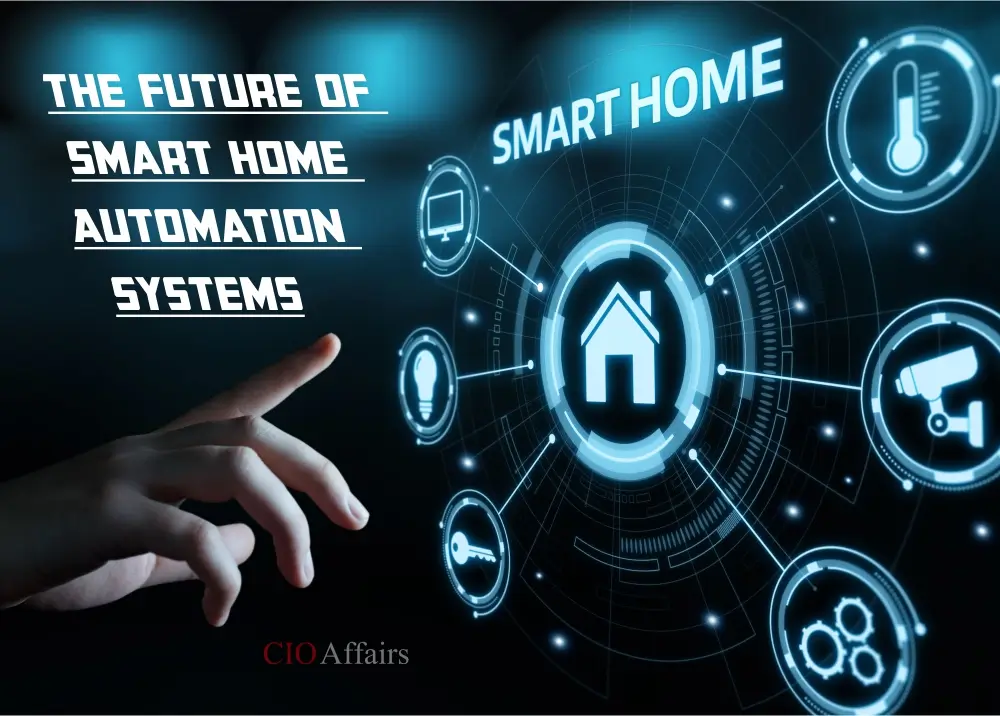In recent years, smart home automation systems have transitioned from niche luxury to mainstream necessity. With advancements in technology, they have become more accessible, intuitive, and integrated into everyday life. As we look toward the future, several key trends and innovations are set to shape the evolution of smart home automation systems, enhancing convenience, security, and efficiency for homeowners.
- Greater Integration and Interoperability
One of the most significant trends in smart home automation is the move towards greater integration and interoperability between devices. Historically, smart home devices from different manufacturers often operated in isolation, making it challenging for users to create cohesive systems. However, advancements in standards and protocols, such as Matter (formerly Project Connected Home over IP), are paving the way for a more unified ecosystem. Matter aims to create a universal standard that allows devices from various brands to work seamlessly together, reducing fragmentation and improving user experience.
As interoperability improves, homeowners will be able to create more sophisticated and customized automation scenarios. For example, you might set up a routine where your smart thermostat adjusts the temperature based on the time of day, while your smart blinds open to let in natural light, all controlled through a single, integrated system. This level of integration will make smart homes more intuitive and easier to manage.
- Enhanced Artificial Intelligence and Machine Learning
Artificial Intelligence (AI) and Machine Learning (ML) are at the forefront of transforming smart home automation. Future systems will leverage these technologies to deliver more personalized and proactive experiences. AI-powered assistants will become increasingly adept at understanding and predicting user preferences, habits, and routines. For instance, an AI system might learn your preferred lighting settings for different times of day or activities, and automatically adjust them without requiring manual input.
Moreover, machine learning algorithms will enable smart home systems to identify patterns and anomalies, enhancing security and energy management. For example, AI can detect unusual behavior patterns, such as unexpected movements or open doors, and alert homeowners to potential security breaches. Similarly, AI can optimize energy consumption by analyzing usage patterns and suggesting adjustments to reduce waste.
- Increased Focus on Cybersecurity
As smart home systems become more advanced and interconnected, cybersecurity will become a critical focus. The proliferation of smart devices creates new entry points for potential cyberattacks. Future smart home automation systems will need robust security measures to protect against unauthorized access and ensure user privacy.
Innovations in cybersecurity for smart homes will include advanced encryption methods, secure authentication protocols, and real-time threat detection. Homeowners will likely see more emphasis on security features such as biometric authentication, which uses fingerprints or facial recognition to control access to devices and systems. Additionally, manufacturers will need to adopt best practices for regular software updates and vulnerability patches to safeguard against emerging threats.
- Integration with Renewable Energy Sources
Sustainability and energy efficiency are becoming central concerns for modern smart home systems. In the future, smart home automation will increasingly integrate with renewable energy sources such as solar panels and wind turbines. Smart grids and energy management systems will enable homeowners to monitor and optimize their energy usage more effectively.
For example, future smart home systems could manage energy storage by directing excess power generated from solar panels to battery storage or adjusting energy consumption based on real-time data from the grid. This integration will help homeowners reduce their carbon footprint and potentially lower energy costs by maximizing the use of renewable energy sources.
- Advanced Voice and Gesture Control
Voice control has become a common feature in smart home systems, but the future promises even more advanced and intuitive methods of interaction. Natural language processing (NLP) will continue to improve, allowing voice assistants to understand and respond to more complex and nuanced commands. Future voice control systems might also be able to recognize different voices within a household and tailor responses based on individual preferences.
Gesture control is another area of innovation. Advanced sensors and cameras could enable users to control smart devices through gestures or movements. This technology would offer a hands-free alternative to voice commands and touch interfaces, making interaction with smart home systems more seamless and natural.
- Expansion of Smart Home Use Cases
As smart home technology evolves, the range of use cases will expand beyond basic automation and control. Future smart home systems will integrate more deeply into various aspects of daily life, from health and wellness to home entertainment.
For instance, smart home systems could monitor health metrics such as heart rate or sleep patterns, providing users with personalized recommendations for improving their well-being. In the realm of home entertainment, advanced systems might create immersive experiences by synchronizing lighting, sound, and visuals based on user preferences or the content being consumed.
- Enhanced User Experience and Customization
The future of smart home automation will place a strong emphasis on enhancing the user experience and offering greater customization options. Interfaces will become more user-friendly, with intuitive dashboards and customizable settings that allow homeowners to tailor their smart home systems to their specific needs and preferences.
Smart home systems will also offer more granular control over automation scenarios. Homeowners will be able to create highly specific routines and conditions, such as adjusting lighting and temperature based on the presence of specific individuals or the type of activity being performed. This level of customization will make smart home systems more responsive and adaptable to individual lifestyles.
The future of smart home automation systems is poised to be marked by greater integration, enhanced AI capabilities, and a strong focus on security and sustainability. As technology continues to advance, smart homes will become more intuitive, efficient, and personalized, transforming the way we live and interact with our living spaces. With ongoing innovations in interoperability, cybersecurity, and user experience, the smart home of tomorrow will offer unprecedented convenience, control, and connectivity, shaping the future of modern living.
Top of Form
Bottom of Form










